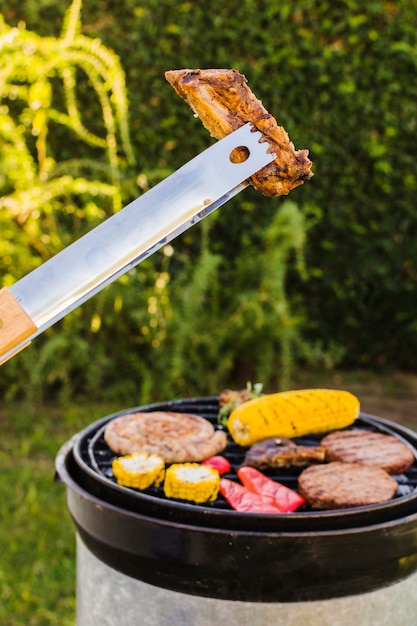How Much Beef Does Burger King Use?
When it comes to fast-food chains, Burger King is undoubtedly one of the most well-known and popular choices around the world. Renowned for its flame-grilled burgers, the company has built a loyal customer base over the years. With such a vast number of customers served daily, it raises the question: how much beef does Burger King actually use?
Burger King’s Commitment to Quality
Burger King places a strong emphasis on sourcing high-quality ingredients to ensure a great tasting experience for its customers. As part of this commitment, the company partners with trusted suppliers who adhere to strict standards when it comes to food safety and quality control.
The exact amount of beef used by Burger King can vary depending on factors such as the location, the time of year, and customer demand. However, it is estimated that globally, Burger King uses approximately 50 million pounds (22,680 metric tons) of beef each year. This substantial quantity speaks to the brand’s popularity and the scale of its operations.
Sustainable Sourcing and Animal Welfare
Burger King recognizes the importance of sustainable sourcing and animal welfare in the food industry. The company is committed to working towards a more sustainable future by sourcing beef from suppliers who follow ethical and environmentally responsible practices.
As part of its ongoing efforts to improve sustainability, Burger King has implemented a policy to reduce deforestation associated with its supply chains. This policy aims to protect forests, wildlife habitats, and indigenous communities by ensuring that the beef supplier’s operations do not contribute to these harmful practices.
Furthermore, Burger King is actively involved in initiatives that focus on responsible farming and animal welfare. The company supports farmers who implement animal welfare standards, ensuring that the cattle used for their products are raised in humane conditions.
Burger King’s Beef Sources
Burger King sources its beef from a diverse range of suppliers worldwide. These suppliers are required to meet the company’s stringent quality and safety standards before being eligible to provide beef for Burger King restaurants.
One notable supplier for Burger King in the UK is ABP Food Group, one of Europe’s leading privately-owned agribusiness companies. ABP is known for its commitment to sustainability and animal welfare, making it an ideal partner for Burger King in the UK market.
To give a better understanding of Burger King’s beef usage, it can be helpful to consider specific product offerings. For instance, the iconic Whopper burger contains a quarter-pound (4 oz) of beef. Based on estimations that Burger King sells around 11 million Whopper burgers daily worldwide, this equates to approximately 2.75 million pounds (1247 metric tons) of beef used for Whopper burgers alone each year.
The Impact of Beef Production on the Environment
It’s essential to note that the beef industry, like any large-scale farming operation, has environmental implications. According to studies, beef production requires significant resources, including land, water, and energy, contributing to greenhouse gas emissions and deforestation.
The United Nations Food and Agriculture Organization (FAO) estimates that the livestock sector, including beef production, accounts for about 14.5% of total global greenhouse gas emissions.
As consumers, it is important to be aware of the environmental impact of our choices. Fortunately, Burger King, along with other fast-food chains, recognizes this and has made commitments to address these concerns. By sourcing beef from suppliers who focus on sustainability practices, Burger King aims to mitigate its environmental footprint.
Conclusion
Burger King, a global fast-food giant, uses a substantial amount of beef each year to meet the demands of its loyal customer base. With an estimated 50 million pounds (22,680 metric tons) of beef consumed globally, it’s clear that Burger King plays a significant role in the beef industry.
However, Burger King is also committed to sustainability and animal welfare. By partnering with suppliers who adhere to ethical practices and implementing policies against deforestation, the company strives to make a positive impact.
As consumers, we should remain conscious of the environmental consequences of beef production and support companies like Burger King that prioritize responsible sourcing. By doing so, we can enjoy our favorite flame-grilled burgers while contributing to a more sustainable future.



